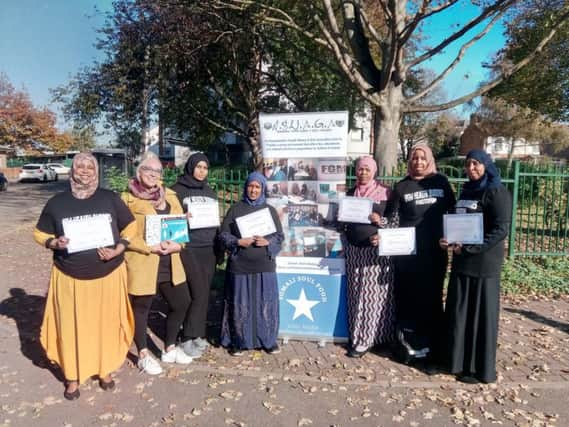Seven Northamptonshire girls needlessly examined at centre for rape victims, 'due to lack of FGM training'


That is the opinion of Spring Boroughs-based group Somali Women and Girls, along with race and gender equality charity Creating Equalz. They say local NHS staff and schools do not know the signs of FGM and refer girls far too easily based on cultural assumptions, causing distress to families.
In fact the authorities should be having enhanced talks with the families to identify risk and, if necessary, put in place safeguarding measures.
Advertisement
Hide AdAdvertisement
Hide AdIt comes as a total of seven girls were referred to the sexual assault referral centre in Northamptonshire in 2016, according to latest figures. However not one of them had actually suffered FGM, or 'cutting'.
Laney Holland, a newly-qualified midwife who is director of Creating Equalz, said: "It is totally disproportionate.
"Instead of bringing parents in and saying 'here's the legal information about why you shouldn't 'cut', the girls have been sent to a centre for sex assault victims.
"In Northamptonshire, we are very serious about safeguarding, but we’re also serious about proportionality. These girls shouldn't have gone through that."
Advertisement
Hide AdAdvertisement
Hide AdCouncillor Muna Cali (Lab, Castle), who has not been 'cut', said misunderstandings about FGM is rife in the medical profession.
She said: "When I was in labour and pushing out my son, I was actually told I had had FGM done to me.
"I hadn't, and I told them that at one of my first midwife appointments. Yet they assumed, because I was from a Somali family, that I'd been cut.
"It's a discussion I'd rather not have been having at that moment."
Advertisement
Hide AdAdvertisement
Hide AdThe two groups are offering to train staff in the NHS, schools and other authorities so they can spot the signs when girls have genuinely suffered FGM and report it, and when their families just need to be warned of the potential dangers.
Both believe that two actions would be a good start. They want to maternity services in Northamptonshire to be able to confidently use the simple tick-box form used in other counties to identify genuine cases of FGM.
And they want to teach more women from Somali backgrounds about safeguarding and standards of care around FGM, so they can advocate for others at medical appointments armed with the facts.
In the meantime, Somali women in Spring Boroughs must pass on their warnings by word of mouth.
Advertisement
Hide AdAdvertisement
Hide AdFardowsa Ishaq from Spring Boroughs has three daughters aged two months, four, and nine, and does not want them to go through a repeat of her trauma.
"It was really bad and it still sticks in my mind. I had no pain relief.
"I don't want my kids to have the same. I tell them it is nothing to do with our religion. How you are made is how you are supposed to stay."